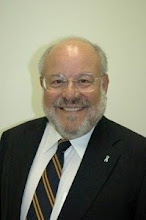Some
Long Island officials are betting that gambling will provide a big financial
boost for the fiscally-pressed county governments of Nassau and Suffolk. Are
they right or making a bad bet?
In June, in a
surprise move, New York State Governor Andrew Cuomo—after months of saying
no—suddenly agreed to the call from officials of Nassau and Suffolk to allow
the two counties to set up facilities for video slot machines. Each could have
a facility with 1,000 video slot machines.
The Cuomo turn-around,
according to well-informed sources, was linked to getting the Long Island
delegation in the New York State Legislature to support his plan to turn the Long Island
Power Authority into a shell and have a private New Jersey utility, Public
Service Electric and Gas, be THE utility on Long Island.
Then votes on a
bill expanding gambling in the state that included the video slot plan for Long
Island and votes on a bill to drastically alter the utility structure on Long
Island were taken in the State Assembly and State Senate—and both passed. “The
governor horse-traded his support for the slots for votes to pass his LIPA
bill,” said one source.
Long Island had
not been included in Cuomo’s original gambling expansion bill. Right up through early June, it would have
authorized three gambling casinos and video slot machines but only upstate. “LI
NOT IN GAMBLING PLAN,” was the headline of a June 6th Newsday article. It quoted Assemblyman Phil Boyle of Bay Shore saying “he’s
‘disappointed but not deterred’ by the island’s omission in Cuomo’s plan.”
A week earlier,
Nassau County Executive Edward Mangano and Suffolk County Executive Steve
Bellone, with the presidents of the two counties’ Off-Track Betting
Corporations, had gone to Albany, meeting with state legislators and “doubling
down,” said Newsday, in seeking “potentially lucrative video gaming” on Long
Island. But Cuomo still felt this would take away from his desire to assist
upstate through gambling.
Then, a week later,
his gambling bill was expanded to allow video slot machines on Long Island and
was voted upon simultaneous with Cuomo’s bill to drastically change the Long
Island utility structure—which had faced stiff resistance from the Long Island
delegation. The “opposition to the bill on LIPA fell apart with the addition of
Long Island to the gambling plan,” said another source. “The two were linked.”
Is gambling the
fiscal rescue some Long Island officials would believe? Consider the Page 1
story in the New York Times last
month headlined: “Crowds Return to Las Vegas, but Gamble Less.” It told of a drop
in gambling revenue with a “new influx of tourists, younger and less devoted to
gambling.”
Or consider a Times piece a month earlier about
gambling in decline in Atlantic City. “Revenues have fallen 40 percent since
their peak in 2006 as new casinos in neighboring states have taken away
gamblers,” it noted.
The video slot
terminals in Nassau and Suffolk would be operated by the Nassau and Suffolk OTB
Corporations—huge troughs for political patronage in both counties. And they
have been in trouble. Suffolk OTB moved to declare bankruptcy last year (New
York City OTB filed for bankruptcy in 2009).
The office of New
York State Comptroller Thomas DiNapoli in a 2010 report titled “Financial
Condition of New York State Regional Off-Track Betting Corporations” spoke of
the “financial condition of the state’s five regional OTB Corporations” having
“substantially deteriorated.” It said “various factors account for the
significant and continuing downturn in handle including a diminished interest
in horseracing” and “competition from unregulated internet gambling sites.”
This “general decline” in horseracing is “demonstrated by decreased attendance
at most state racetracks.” There are not
only now many casinos all over the United States diluting the gambling
industry, but “government-sponsored lotteries,” too, noted the report.
The lure of
winning hundreds of millions of dollars in the Powerball lottery, owned and
operated by 33 state lotteries, towers over winning the tiniest fraction of
that on a video slot machine.
Meanwhile, Congressman
Peter King of Seaford, whose district includes parts of both Nassau and
Suffolk, introduced a bill in June that would license online gambling at the
federal level, further spreading gambling choices.
Is the pot of
government gold from video slot machines a mirage? I bet it is.

